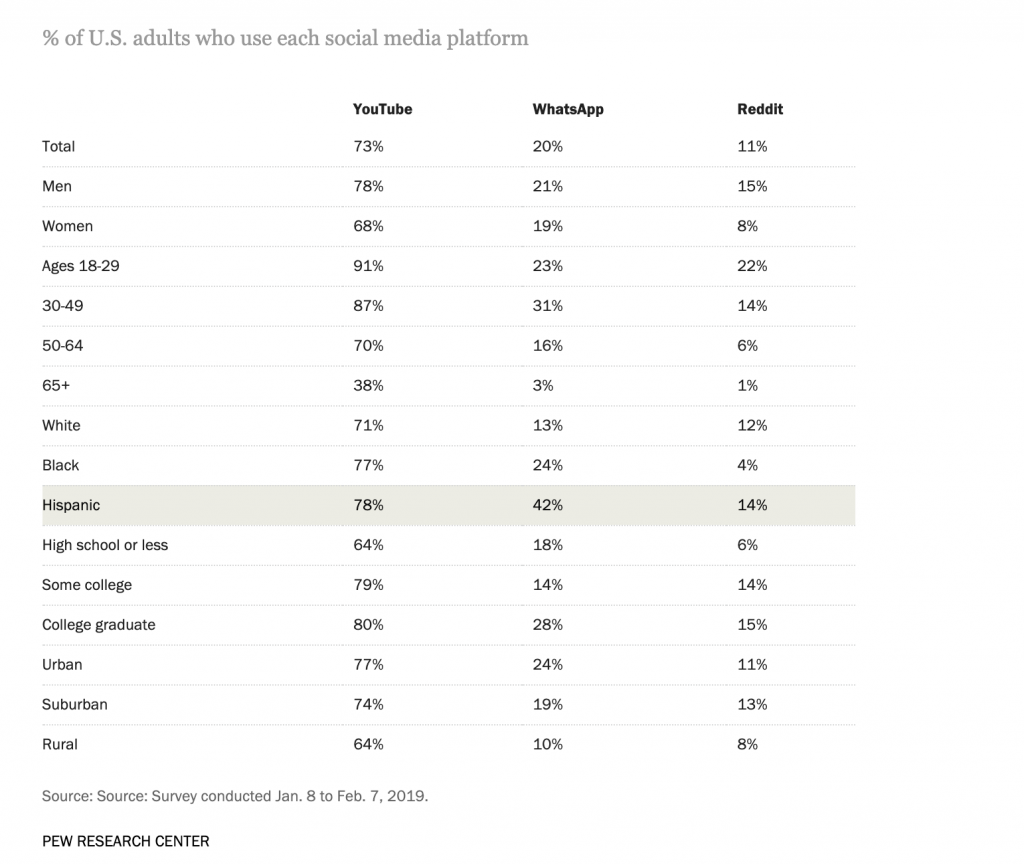About three billion individuals are in lockdown worldwide — and almost 90% of the student population is home from school — according to UNICEF, connecting to the outside world and learning through the internet has become a critical tool.
Social media posts and meme accounts have surfaced with satirical solutions to the coronavirus, but many UCF students in the Latino community said they do not find the memes amusing due to the potential of spreading false information.
Juan Escudero, senior aerospace engineer major, said the most common Hispanic household sickness remedy is Vicks VapoRub, a topical cough suppressant.
“So, according to Hispanic sickness memes like, it’s always the usual when you’re sick, your mom immediately has the Vicks Vapor Rub and the moment you put that on your chest or on your nose you immediately feel better,” Escudero said.

While this common remedy can be used to help relieve some symptoms, it is not the solution or cure for COVID-19.
The World Health Organization’s website states there is no vaccine and no specific antiviral medicines against COVID-19 at this time, although there are numerous ongoing clinical trials. The World Health Organization also created a website dedicated to debunking myths commonly seen in memes on social media platforms.
Layla Vieira, junior health sciences major, said that spreading this content can have some negative effects on the Hispanic community, such as misinforming the public about what they can do to prevent or cure the virus.
Vieira said not all jokes are as funny as some individuals may think. She said what other individuals think is a joke may be interpreted as actual news to another.
“… [for] a lot of the people [in] the Hispanic community, there’s a bunch of things about how your mom sees a bunch of stuff on WhatsApp,” Vieira said. “Then they spread fake news. I feel like a lot of it helps with fake news.”
WhatsApp is a messaging app that can be used to communicate around the world. Its website states the application is free to use and can use either a wireless internet network or cellular data connection to send messages, images, audio and other media.
According to Pew Research, 42% of Hispanics in the U.S. use WhatsApp.

From the start of the pandemic, the app has seen an increased use of 40%, according to a TechCrunch survey. While the usage of the app has increased, consumers reported that they do not trust social media platforms when it comes to reports and updates on COVID-19.
Based on the survey, social media platforms were only considered “trustworthy” sources for coronavirus-related news by 11% of consumers.
Vieira said sharing chain messages and memes has made it harder for people like her parents to determine what is fact or fiction. Vieira said despite the memes intended to be satirical, not every individual will infer it that way.
WhatsApp donated $1 million to the Poynter Institute’s International Fact-Checking Network in March, according to a news release. Will Cathcart, head of WhatsApp, said in the release that messaging app is continuing to provide a reliable and secure way for people to communicate.
“We know that our users are reaching out on WhatsApp more than ever at this time of crisis,” Cathcart said in the release. “… We are also pleased to be able to partner with the Poynter Institute to help grow the amount of fact-checking organizations on WhatsApp and to support their life saving work to debunk rumors.”
Joanais Rivera, junior psychology major, said her family is taking precautions during this time. Joanais Rivera said her mother worries about the dangers of the virus easily, so seeing anything about the virus on social media can be triggering.
“They have all the shoes outside in the garage they’re not bringing outside shoes in and you take a shower as soon as you get home,” Joanais Rivera said while discussing precautions her mom is taking after seeing word about it on social media.
UCF junior psychology major Vania Rivera said she does not think the intentions of these memes or jokes are negative and said everyone has a different view on the effects of this pandemic and copes differently.
“I don’t think it’s influential in a bad way,” Vania Rivera said. “I think that it tries to bring light to the situation.”
According to a survey conducted by Pew Research Center, about 70% of Hispanic adults in the U.S. have at least one social media platform.
Chrysalis Wright, an associate lecturer in psychology at UCF with expertise in social media behavior, said she thinks the satirical posts shared online may be how some individuals are coping with the isolation and separation aspects of the coronavirus pandemic.
“It can release tension,” Wright said. “It can be used to reduce stress and anxiety.”
Wright said these kinds of jokes used in everyday social media can be a means to unite cultures through humor.
“I think they’re using those types of memes to express the idea that they could beat the virus and overcome the virus if they had to,” Wright said.
Wright said humor is one of many ways people cope with hard times. She said while the effect of this pandemic is not a laughing matter, many students have a different way of finding ways to make the best of their situation.




